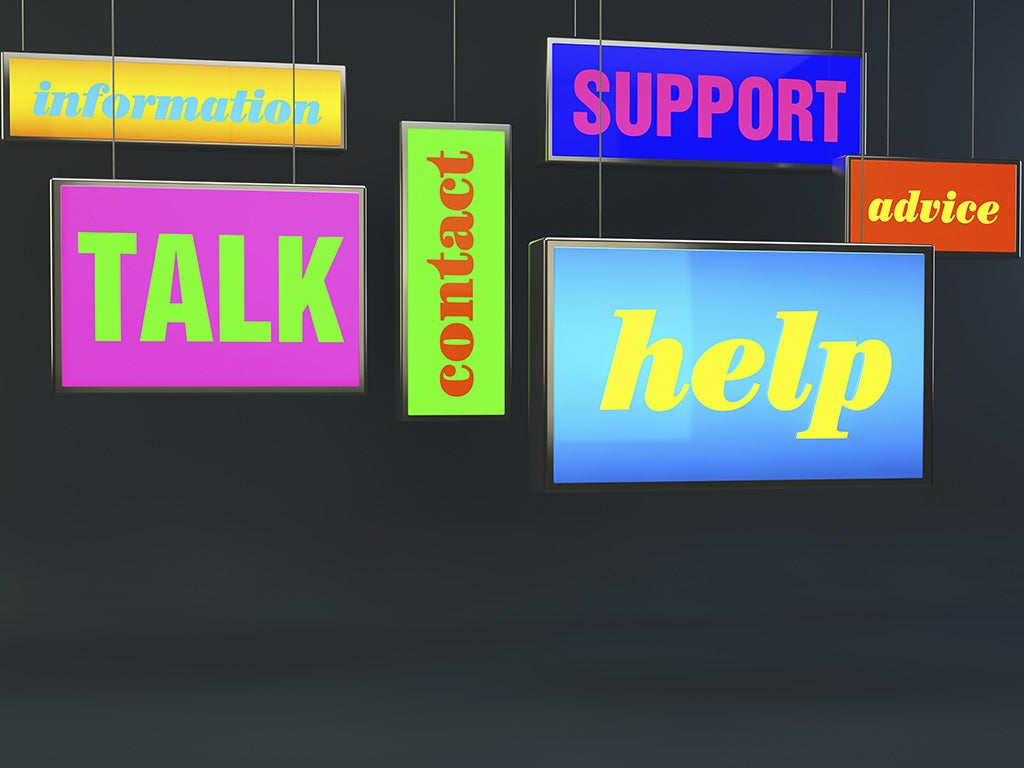Depression Awareness Week: 'My life feels bleak, but should I dig up a painful past with counselling?'
"While some memories are successfully buried so deep that they can never rise to the surface, others demand attention"

Dear Virginia,
I’ve been depressed for a few months. My GP has suggested that I try counselling, particularly as I had a painful past, with my mother dying when I was 10, and, soon after, my father marrying a woman who hated me. I’ve managed to hold things together and get through university with a good degree and now have a job, but recently my life has felt very bleak and I can’t really see the point of it. But my boyfriend says that I shouldn’t dig up the past – I should put it behind me and move on. What do you think?
Yours sincerely,
Monica
Virginia says
Your boyfriend makes an excellent point. An enormous number of people are able either to bury horrible experiences for good, or park them conveniently on a shelf so high up that they’re never in the field of vision. I imagine that most people going about their daily business perfectly happily have had the odd unspeakable experience in their childhoods, but for some reason they’ve dealt with it in such a manner that it’s never bothered them again. For those people, it would be a great mistake to start burrowing and staring and analysing; far from being helpful, it could just traumatise them all over again, and there’s no use in that.
But from what you say, it sounds, from your symptoms, as though something’s going on in your psyche that needs some attention. The depression is the rumbling of an old injustice or pain that, far from being buried, is shoving its way to the surface, demanding to be heard. It’s easy for your boyfriend to say that you should put things behind you, but what if they refuse to be ignored? What if you can’t put them behind you?
When children’s parents die when the children are young, they often feel, in a completely unjustified way, that the death is somehow their fault; it was something bad they did that made the person die – or something that they didn’t do. As children are naturally self-centred beings, they can’t believe that things happen around them by accident – whatever happened must be because of their reprehensible behaviour. You might have got over this, if you’d had enough love and affection, but no. Your guilt was only to be confirmed by the views of your stepmother, who hated you. Mother dies, leaving you full of unjustified guilt, and your stepmother loathes you, ergo you are an unlovable and vile human being.
I feel sure that a course of counselling, or CBT if you prefer, would help you enormously. While some memories are successfully buried so deep that they can never rise to the surface, others, like yours, demand attention. And it’s precisely because they are suppressed that the feelings become so strong. Lock anyone up in a cage and he’ll swiftly turn into a wild person, foaming at the mouth with rage and frustration. Let him free and he becomes calm and happy.
But of course your boyfriend may be fearful of you talking intimately to a third party because he fears you’ll talk about him as well as your past. He also may be feeling jealous that you’re prepared to open up intimately to someone else apart from him, and he sees counselling as a threat.
But I think talking about your past not only won’t do you any harm, but it could be immensely helpful. It’s a shame that your boyfriend feels as he does. Perhaps he has some demons that he’s very anxious not to deal with himself.
Readers say...
It worked for me
Like Monica, I had a very bleak childhood. I was the illegitimate daughter of a manic-depressive woman who spent much time in mental hospitals, leaving me to be brought up by an unsympathetic grandmother. My mother eventually killed herself.
I suffered many episodes of clinical depression and spent some time in a mental hospital when I was 21. Nonetheless, at 71, I could not be happier. I have been very happily married for nearly 40 years, have good friends, and I enjoy life enormously.
How did I reach this happy state? Through therapy. It does mean digging up the past, yes, but that leads to “detoxifying” it in some way. Instead of being buried below the surface, where it festers, it is exposed to sunlight, which somehow sterilises it. I don’t quite know how. It is unobtrusive, like some kind of quiet magic, but it sure as hell works. Go for it, Monica!
Sara Neill
by email
You need to confront your past
We do not have to be held down by the past but “digging it up” is not unhealthy, if done the right way. Clearly, you need to confront certain aspects of your past to get closure.
Let the past guide you instead of misguiding you, and let others help as much as possible. It is not a sign of weakness. Counselling in some form can help to even avoid full-blown depression. You may have to see your GP or a psychiatrist or even use medication short term until you are strong enough to deal with psychological issues. You have managed to “hold it together”, and this means you are probably stronger than you think, but give yourself a break. Ask for help. Putting it behind you does not mean forgetting about it, but making sense of it, and then you move on by using it to help you in future dilemmas.
Louis
by email
Get the right therapist
On the face of it, it does seem worth discussing the events in your life, if only to gain an understanding of their emotional impact. However, there is a rationale behind your boyfriend’s point. A continued focus on previous influences can lead to a brooding introspection. It would be worthwhile trying to get a therapist who will help you clarify the past but who is also willing to focus on what you can do now to produce a more positive future.
Cole Davis
by email
Next week's dilemma
I’m 50, and I’ve just got a new boss, a man of 30. Having been in the same job for years, I have never had a problem and I get on with everyone, but this man appears to be picking on me. His emails are cold and formal, and he never says good morning to me when he comes into the office, though he greets other people. I’ve tried to help him understand various ways that the office works, as I’ve been here the longest, as unobtrusively as possible, but he brushes me aside. And if I make any suggestions, he doesn’t even respond. What can I do?
Yours sincerely,
Patricia
What would you advise Patricia to do? To answer this dilemma, or to share your own problem, write to dilemmas@independent.co.uk
Anyone whose advice is quoted or whose dilemma is published will receive a Finest Bean Mini Bar Gift Pack from Prestat (prestat.co.uk).
Subscribe to Independent Premium to bookmark this article
Want to bookmark your favourite articles and stories to read or reference later? Start your Independent Premium subscription today.




Join our commenting forum
Join thought-provoking conversations, follow other Independent readers and see their replies
Comments